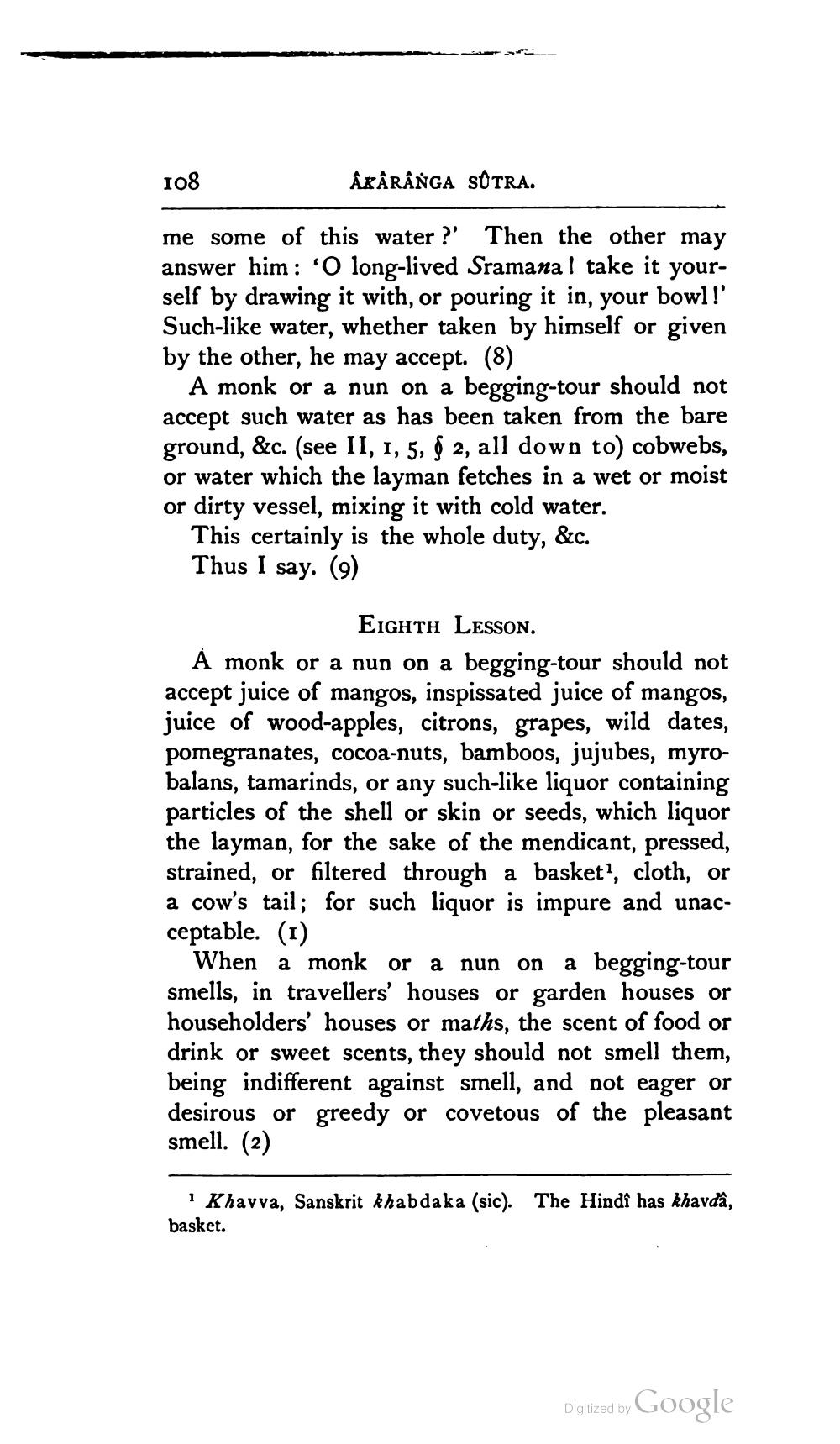________________
108
ÂRÂRÂNGA SÚTRA.
me some of this water ?' Then the other may answer him: 'O long-lived Sramana ! take it yourself by drawing it with, or pouring it in, your bowl!' Such-like water, whether taken by himself or given by the other, he may accept. (8)
A monk or a nun on a begging-tour should not accept such water as has been taken from the bare ground, &c. (see II, 1, 5, § 2, all down to) cobwebs, or water which the layman fetches in a wet or moist or dirty vessel, mixing it with cold water.
This certainly is the whole duty, &c. Thus I say. (9)
EIGHTH LESSON. À monk or a nun on a begging-tour should not accept juice of mangos, inspissated juice of mangos, juice of wood-apples, citrons, grapes, wild dates, pomegranates, cocoa-nuts, bamboos, jujubes, myrobalans, tamarinds, or any such-like liquor containing particles of the shell or skin or seeds, which liquor the layman, for the sake of the mendicant, pressed, strained, or filtered through a basket", cloth, or a cow's tail; for such liquor is impure and unacceptable. (1)
When a monk or a nun on a begging-tour smells, in travellers' houses or garden houses or householders' houses or maths, the scent of food or drink or sweet scents, they should not smell them, being indifferent against smell, and not eager or desirous or greedy or covetous of the pleasant smell. (2)
i Khavva, Sanskrit khabdaka (sic). The Hindi has khavdà, basket.
Digitized by Google




